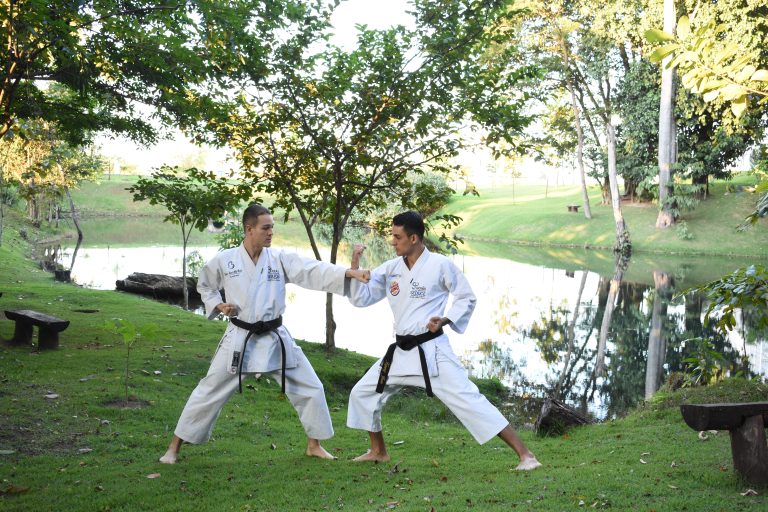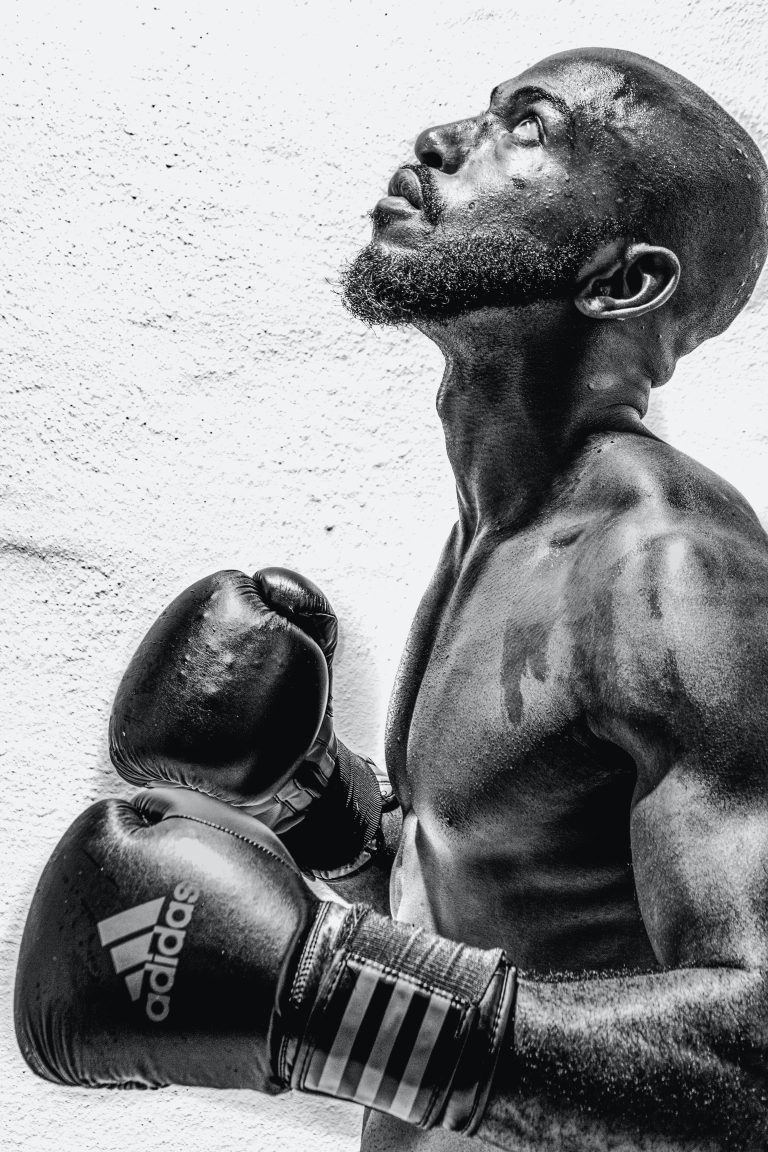Karate-Do: Eine Einführung in die Philosophie des Kampfsports
Karate-Do ist ein japanischer Kampfsport, der sich durch seine Philosophie und Technik auszeichnet. Die Wurzeln von Karate-Do gehen zurück auf die Insel Okinawa, wo es sich in der Notwendigkeit entwickelte, sich gegen Angreifer zu verteidigen. Heutzutage wird Karate-Do nicht mehr nur als Kampfsport betrieben, sondern auch als Übung zur körperlichen und geistigen Stärkung. In diesem Blogpost wollen wir uns daher mit der Philosophie des Karate-Do auseinandersetzen.
Der Weg des Karate-Do
Karate-Do bedeutet wörtlich übersetzt “Der Weg der leeren Hand”. Doch was ist damit gemeint? Hier geht es um die Idee, eine Technik vollkommen zu beherrschen, um sie als letztes Mittel der Selbstverteidigung einzusetzen. Der Weg des Karate-Do ist also ein Weg zur Selbstdisziplinierung und Selbsterkenntnis.
Die Werte des Karate-Do
Im Karate-Do werden bestimmte Werte und Tugenden sehr hoch geschätzt. Dazu gehören:
- Respekt: Respektvoll miteinander umzugehen ist ein wichtiger Bestandteil des Karate-Do.
- Höflichkeit: Höflichkeit und Freundlichkeit gegenüber anderen ist ein wichtiger Grundsatz im Karate-Do.
- Durchhaltevermögen: Karate-Do erfordert viel Disziplin und Durchhaltevermögen.
- Konzentration: Konzentration ist im Karate-Do unverzichtbar, um Techniken perfekt auszuführen.
Die Techniken des Karate-Do
Karate-Do ist berühmt für seine Techniken wie Tritte, Schläge und Stöße. Doch im Karate-Do geht es nicht nur um die richtige Ausführung der Techniken, sondern auch um die innere Einstellung. Im Karate-Do geht es darum, Techniken mit geistiger und körperlicher Konzentration und Energie auszuführen. Erst durch die richtige Ausführung der Techniken und das Verinnerlichen der Philosophie des Karate-Do wird man zum Meister.
Fazit
Karate-Do ist mehr als nur ein Kampfsport. Es ist eine Philosophie, die darauf abzielt, Körper und Geist zu stärken und zu disziplinieren. Durch die Werte, Tugenden und Techniken des Karate-Do kann man körperliche und geistige Stärke erlangen sowie Respekt und Höflichkeit im Umgang mit anderen Menschen zeigen.
Introduction
Karate-Do is a popular martial art with roots in Japan. Although the martial art is often associated with fighting and self-defense, it is more than just physical movements. Karate-Do is also guided by its philosophy, which encompasses various principles and values designed to cultivate the mind and body of the practitioner. In this blog post, we will explore some of the most frequently asked questions about Karate-Do and its philosophy.
What does Karate-Do mean?
Karate-Do translated to English means “the way of the empty hand”. In Japanese, „kara“ means empty, and „te“ means hand. The “Do” at the end means the way or the path.
What is the philosophy of Karate-Do?
The philosophy of Karate-Do revolves around the concept of using physical techniques as a means of self-discipline and personal growth. Much emphasis is placed on developing the mind and body together, and this is achieved through rigorous training and adherence to certain principles.
The Six Principles of Karate-Do
There are six principles of Karate-Do which are important to every practitioner of the martial art.
- Kihon: This principle focuses on the fundamentals of Karate-Do, including basic techniques and movements. It is important to master these fundamentals before attempting more complex techniques.
- Kata: Kata refers to pre-arranged movements that simulate a fight scenario. Practicing kata is meant to help the Karate-Do practitioner develop proper form, breathing, speed, and timing.
- Kumite: Kumite refers to sparring with a partner. It puts the techniques and concepts learned in Kihon and Kata into practice. Kumite is also an opportunity to test one’s own physical and mental abilities against an opponent.
- Kokoro: Kokoro is a Japanese term that refers to the heart or essence of a person. This principle emphasizes the importance of developing strong mental fortitude and character.
- Fudoshin: Fudoshin means immovable mind. It is important to maintain a calm and focused mind during times of stress and adversity.
- Zanshin: Zanshin means a state of heightened awareness. This principle emphasizes that a Karate-Do practitioner should remain vigilant and ready to act, even after the immediate danger has passed.
What are the benefits of practicing Karate-Do?
Practicing Karate-Do has numerous benefits, including physical fitness, self-defense skills, stress relief, and improved mental health. Additionally, the philosophy of Karate-Do can help practitioners develop discipline, self-confidence, and respect for others.
Physical Fitness
Karate-Do is a highly physical martial art, with its techniques requiring strength, endurance, and agility. Practicing Karate-Do can help improve cardiovascular health, flexibility, and overall physical fitness.
Self-Defense Skills
Karate-Do techniques can be used in self-defense situations. Through regular practice, practitioners can develop the confidence and skills needed to defend themselves in a dangerous situation.
Stress Relief
Like other physical activities, Karate-Do can help alleviate stress and anxiety. The intense focus required during practice can serve as a form of meditation, helping to clear the mind and promote relaxation.
Improved Mental Health
The philosophy of Karate-Do emphasizes the importance of developing a strong and disciplined mind. Practicing Karate-Do has been shown to improve mental health by reducing symptoms of anxiety and depression.
Conclusion
Karate-Do is more than a martial art. It is a way of life, guided by its philosophy of self-discipline, personal growth, and respect for others. Practicing Karate-Do has numerous physical and mental benefits, making it an excellent choice for anyone looking to improve their overall health and well-being. By adhering to the six principles of Karate-Do, practitioners can develop not only their physical skills but their character and mental fortitude as well.
Inhaltsverzeichnis






